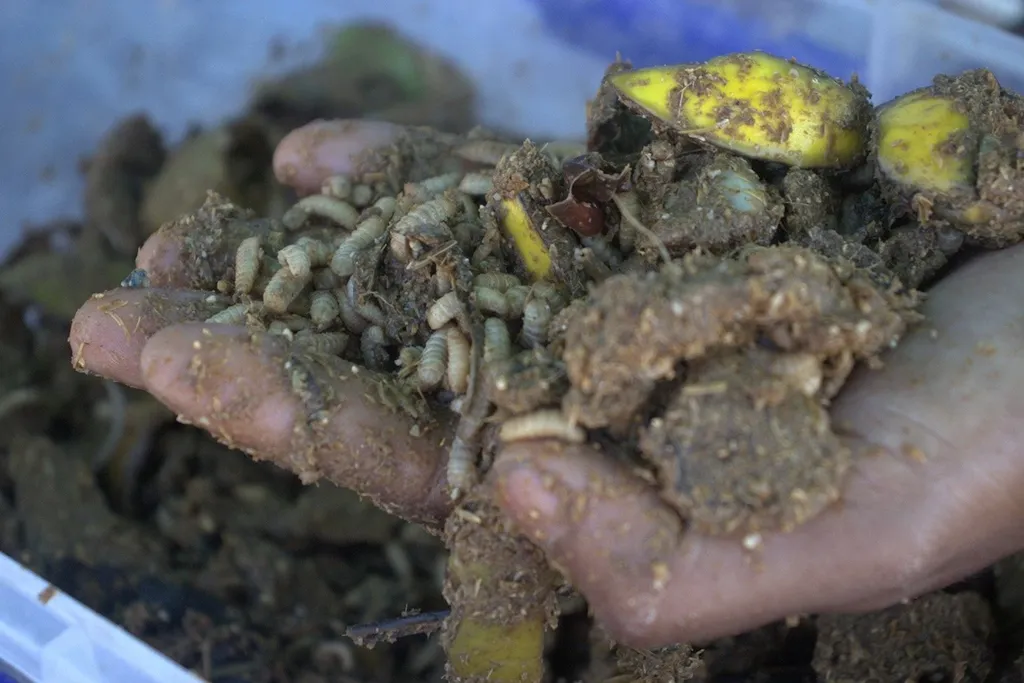In the quest for sustainable agricultural practices, a groundbreaking study has emerged that could revolutionize how we think about soil amendments and waste management. Researchers from Purdue University, led by Catherine Terrell from the Department of Entomology, have published a study in the Journal of Sustainable Agriculture and Environment (which translates to “Journal of Sustainable Agriculture and Environment” in English) that explores the potential of black soldier fly (BSF) compost as a viable alternative to traditional composted cow manure.
The study, titled “Evaluation of Black Soldier Fly (Hermetia illucens) Compost as a Soil Amendment for Vegetable Production,” compares the efficacy of BSF-derived compost to commercially available composted cow manure. The results are promising, indicating that BSF compost not only matches but in some cases exceeds the performance of traditional compost.
“BSF-derived composts were higher in key nutrients (N-P-K) compared to composted cow manures,” Terrell explained. “This, combined with a higher amount of organic matter, suggests that BSF compost could be a game-changer for sustainable agriculture.”
The study found that BSF-derived compost performed as well as commercial composted cow manure when applied to tomatoes and significantly increased fresh weight, above- and below-ground biomass in carrot production, and height, stem diameter, and below-ground biomass in cucumber production. These findings highlight the potential of BSF compost to enhance crop yields and improve soil health.
One of the most compelling aspects of this research is its alignment with the principles of the circular economy. BSF larvae can process a wide range of organic waste materials, reducing the time to compost maturity to just five weeks. This rapid turnaround, coupled with the co-production of insect-derived protein, offers a dual benefit: enhanced agricultural sustainability and a valuable byproduct for animal feed or other applications.
“The additional benefits that coincide with soil amendment generation by BSF larvae include the wide resource base that can be utilized and the decreased time to compost maturity,” Terrell noted. “This reinforces the benefits to increased agriculture sustainability in the face of dwindling resources and increased population growth.”
The implications for the energy sector are also significant. As the world seeks to reduce waste and maximize resource efficiency, BSF composting presents an innovative solution that could be integrated into larger waste management and energy systems. By converting organic waste into a valuable agricultural input, this method not only reduces the burden on landfills but also contributes to a more sustainable food production system.
This research opens up new avenues for exploration in the field of sustainable agriculture. As Terrell and her team continue to investigate the potential of BSF compost, the agricultural and energy sectors can look forward to more innovative solutions that address the pressing challenges of resource depletion and environmental degradation.
In a world where sustainability is no longer optional but imperative, the work of Catherine Terrell and her colleagues offers a beacon of hope. Their findings not only challenge the status quo but also pave the way for a more sustainable future, one where waste is transformed into a valuable resource and agriculture thrives in harmony with the environment.

